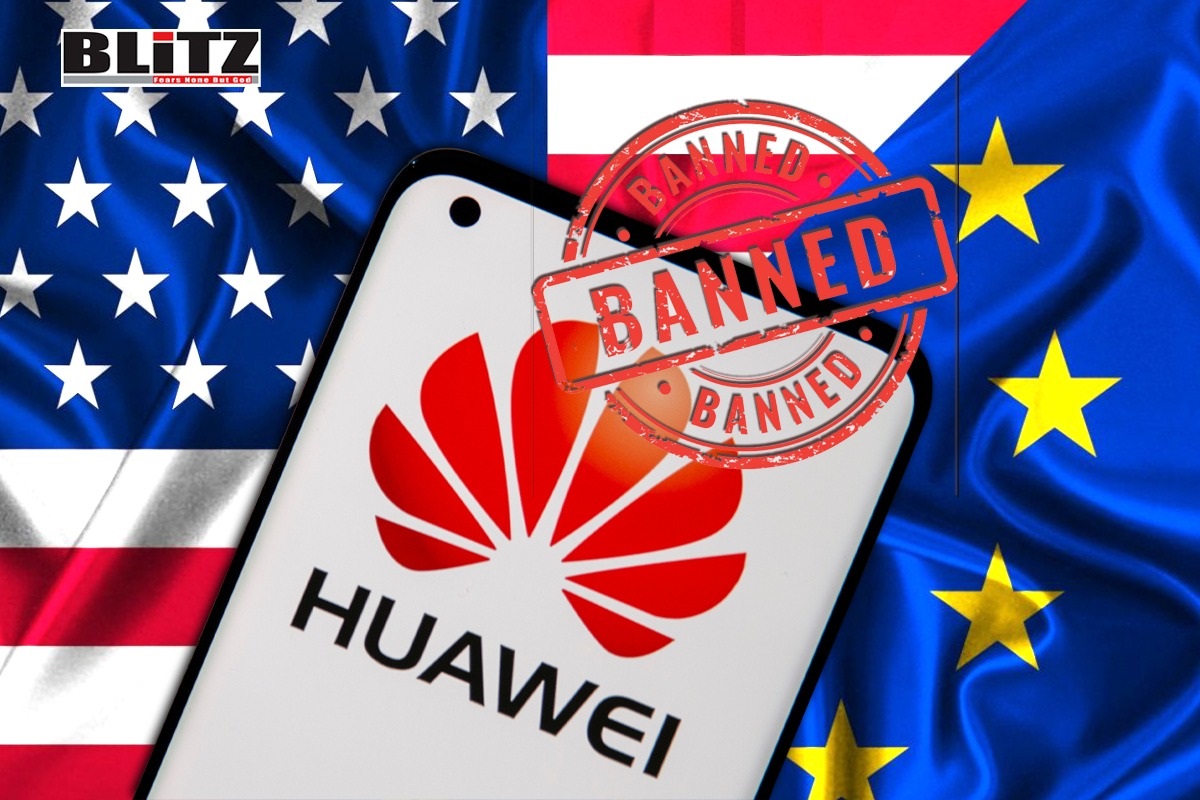America and the European nations are in trouble by banning Huawei
- Update Time : Tuesday, June 25, 2024

The United States and its European allies face significant challenges as they attempt to counter the appeal of Chinese tech giant Huawei in the race to provide 5G technology to developing nations. Despite their efforts to highlight “national security” concerns, industry experts warn that these bids will likely fall short unless Western nations can offer competitive commercial outputs, drive economic development, and introduce cutting-edge industrial capabilities across sectors from agriculture to healthcare. Developing countries are eager to access the best information and communication technologies (ICT) to accelerate their economic progress, with 5G networks playing a crucial role.
Central to this technological advancement are fifth-generation mobile networks, or 5G, which promise increased bandwidth, lower latency, greater interconnectivity, and faster network speeds. Without robust domestic 5G providers, countries in Southeast Asia, the Middle East, and Africa look abroad to integrate this technology into their economies. This scenario has led to a significant technological power struggle between China and the West. If the United States and its allies cannot provide viable 5G alternatives to the financially attractive offers from Huawei, they risk losing technological superiority and credibility to China.
The US has been actively trying to convince countries worldwide that Beijing’s increasing influence in their financial and political institutions undermines freedom within the current rules-based international order. However, the fundamental challenge lies in demonstrating to these nations that relying on Chinese technology for growth is ultimately detrimental.
This argument is particularly challenging when Beijing delivers impressive short-term results. Malaysia exemplifies this dilemma. It adopts an open and global approach to technological development, collaborating with a variety of partners without strict allegiance to either Chinese or Western corporations.
In 2023, Malaysia signed a memorandum of understanding (MoU) with China on 5G digital cooperation to facilitate information sharing. This followed Swedish company Ericsson’s construction of Malaysia’s first state-owned 5G network with a US$2.5 billion investment. Malaysia remains flexible, with Ericsson also partnering with Malaysian telecommunications and research firms to direct resources to businesses and private industries. Meanwhile, Chinese companies, notably Huawei, have not remained passive. They actively lobby to reopen the selection process for 5G investments, leveraging their regional influence and economic pressure.
The Western response has focused on national security concerns. U.S., UK, and EU officials have warned Malaysian authorities against reopening negotiations with Huawei. US Ambassador to Malaysia, Brian McFeeters, argued that a rival network by Huawei would expose the country’s infrastructure to national security risks.
However, economic incentives often outweigh these security concerns. The Belt and Road Initiative (BRI) exemplifies how lucrative deals can eclipse US warnings. One of Malaysia’s 5G providers, Digital Nasional Berhad (DNB), could benefit from having multiple 5G vendors, reducing costs and accelerating nationwide implementation. This diversity would also prevent a single point of failure in the network. Huawei’s involvement would combat monopolization while offering cheaper solutions – a significant advantage for developing countries.
Malaysian officials prioritize economic benefits over alleged security risks, a stance shared by other nations not heavily influenced by the US For instance, in 2019, Australia banned Huawei from installing 5G equipment, citing unsubstantiated claims that Huawei could shut down national security infrastructure. New Zealand followed suit with similar concerns.
Industry insiders highlight the main issue with American and European companies: they offer few affordable 5G alternatives, leaving many countries with no option but Huawei. As a result, 2022 marked significant victories for China. Leading 5G operators in Turkey and Brazil signed MoUs with Huawei. In Thailand, Huawei hosted the 2022 5G Summit, cementing its industry leadership two years after establishing a research center there. Huawei also partnered with an Indonesian telecom company to develop a 5G-driven “smart city”, building on similar projects in the Middle East.
Additionally, Huawei played a crucial role in completing the multi-continental PEACE cable, connecting several countries from Singapore to Malta.
Meanwhile, American agencies have been slow to develop robust 5G solutions. Reports emphasize the national security risks of lagging behind in 5G technology, but lack concrete policy solutions. For instance, a 2019 report noted the absence of American vendors for radio access networks (RAN), essential for 5G transformation. In January 2021, the National Telecommunications and Information Administration (NTIA) acknowledged that establishing R&D grants to support RAN innovation would benefit U.S. interests but noted that more analysis was needed to determine effective policy options. Consequently, American policy addressing 5G shortcomings remains in its infancy.
Washington’s efforts to compete with Huawei have largely focused on its closest allies. While the US has pushed for the adoption of open RAN technology as an alternative to Huawei, this initiative has mostly resonated with countries opposing China. Africa and Southeast Asia, regions heavily involved in BRI projects, remain challenging markets for the US to penetrate with its security-based arguments against Chinese equipment.
Countries like Indonesia, Cambodia, Thailand, South Africa, Kenya, and Uganda historically oscillate between accepting Western or Chinese loans.
However, they increasingly lean towards the latter, driven by the immediate economic benefits offered by Chinese technology giants like Huawei.
The Western nations’ struggle to counter Huawei’s influence in the 5G arena underscores a broader technological power competition. To regain technological leadership, the US and its allies must offer competitive, affordable, and innovative 5G solutions, addressing not just security concerns but also the economic aspirations of developing nations.













Leave a Reply